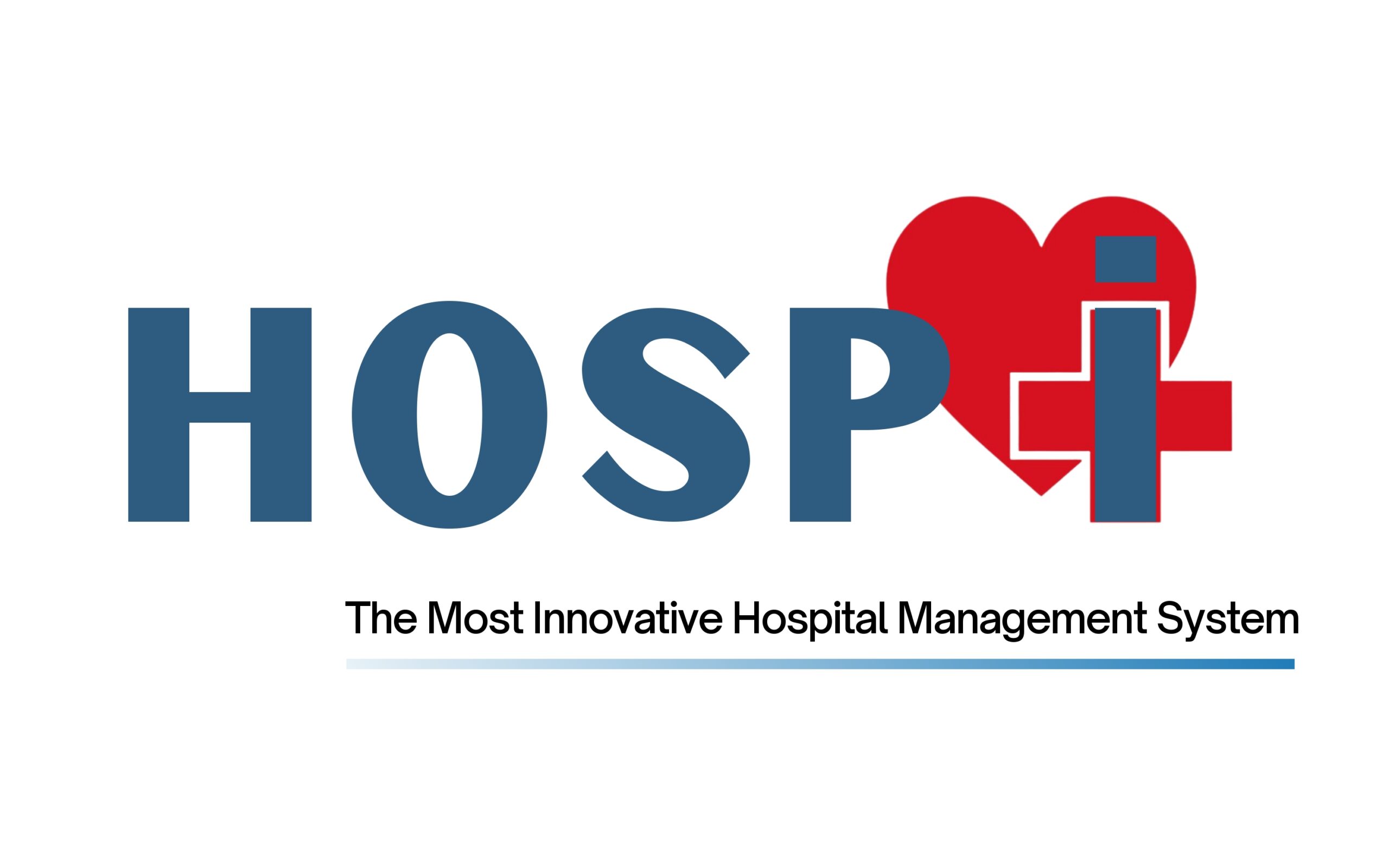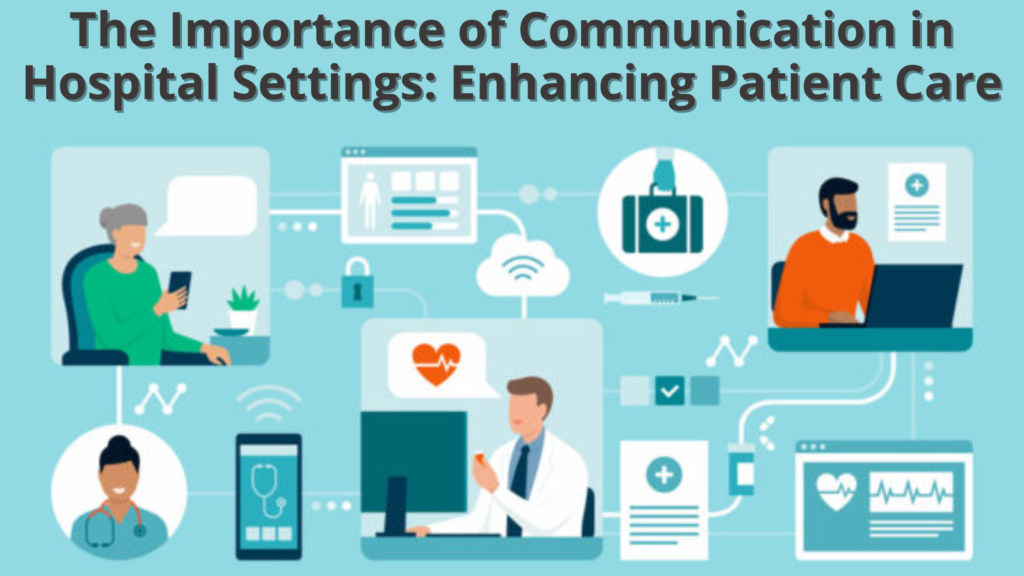Communication is essential in any healthcare setting, but it is especially important in hospitals. This is because hospitals are complex environments with a variety of different professionals working together to provide care for patients. Effective communication is critical for providing the best possible care to patients.
There are many different aspects of communication that are important in hospitals. These include:
- Communication between patients and their healthcare providers. This is the most important type of communication in hospitals. Patients need to be able to communicate their symptoms and concerns to their providers, and providers need to be able to communicate the diagnosis and treatment plan to patients in a way that they can understand.
- Communication between healthcare providers. Communication between physicians, nurses, and other healthcare workers is included. It is important for healthcare providers to be able to communicate effectively with each other so that they can coordinate care for patients.
- Communication between different departments in the hospital. This includes communication between the emergency department, the operating room, the intensive care unit, and other departments. It is important for different departments to be able to communicate effectively so that they can provide seamless care for patients.
- Communication with patients’ families and friends. Patients’ families and friends are often involved in their care, so it is important for healthcare providers to be able to communicate effectively with them. This includes providing them with updates on the patient’s condition, answering their questions, and addressing their concerns.
Benefits of Effective Communication in Hospitals
There are many benefits to effective communication in hospitals. These include:
- Improved patient safety. When healthcare providers communicate effectively, they are less likely to make mistakes. This can help to prevent medical errors, which can lead to patient harm.
- Improved patient satisfaction. Patients who feel that they have been communicated with effectively are more likely to be satisfied with their care. This can lead to increased patient loyalty and a better reputation for the hospital.
- Reduced costs. When healthcare providers communicate effectively, they are more likely to avoid unnecessary tests and procedures. This can help to reduce the cost of care.
- Increased efficiency. When healthcare providers communicate effectively, they are able to coordinate care more effectively. This can lead to shorter wait times and improved patient flow.
Challenges to Effective Communication in Hospitals
There are a number of challenges to effective communication in hospitals. These include:
- Time constraints. Healthcare providers are often under time pressure, which can make it difficult to communicate effectively.
- Language barriers. Patients and healthcare providers may not speak the same language, which can make communication difficult.
- Cultural differences. Patients and healthcare providers may have different cultural backgrounds, which can also make communication difficult.
- Technology problems. Technology problems, such as electronic health record (EHR) outages, can disrupt communication and lead to errors.
Strategies for Improving Communication in Hospitals
There are a number of strategies that can be used to improve communication in hospitals. These include:
- Training healthcare providers on communication skills. Healthcare providers should be trained on how to communicate effectively with patients, families, and other healthcare professionals.
- Using technology to improve communication. Technology, such as EHRs and electronic communication tools, can be used to improve communication in hospitals.
- Creating a culture of communication. Hospitals should create a culture of communication where it is safe to ask questions and share information.
- Addressing language and cultural barriers. Hospitals should provide translation services and training on cultural awareness to help overcome language and cultural barriers.
The Importance of Communication in Patient Safety
As mentioned earlier, effective communication is essential for patient safety. This is because communication errors can lead to medical errors, which can have serious consequences for patients. For example, a study by the Institute of Medicine found that communication errors were a factor in up to 70% of all medical errors.
There are a number of ways that communication errors can occur in hospitals. For example, patients may not be able to communicate their symptoms effectively to their healthcare providers. This might result in a misdiagnosis or a delay in treatment. Healthcare providers may also not communicate effectively with each other, which can lead to errors in care coordination.
The Importance of Communication in Patient Satisfaction
In addition to patient safety, effective communication is also important for patient satisfaction. Patients who feel that they have been communicated with effectively are more likely to be satisfied with their care. This is because effective communication helps to build trust between patients and their healthcare providers. It also helps to ensure that patients understand their condition and treatment plan.
A study by the American Hospital Association found that patient satisfaction is strongly correlated with effective communication. The study found that patients who were satisfied with their communication with healthcare providers were more likely to be satisfied with their overall care.
The Importance of Communication in Cost Savings
Effective communication can also help to save hospitals money. This is because it can help to prevent medical errors, which can be costly. It can also help to reduce the need for unnecessary tests and procedures.
A study by the Agency for Healthcare Research and Quality found that hospitals that implemented a communication improvement program saved an average of $1.2 million per year. The study found that the program helped to reduce medical errors and the need for unnecessary tests and procedures.
Strategies for Improving Communication in Hospitals
There are a number of strategies that can be used to improve communication in hospitals. These include:
- Training healthcare providers on communication skills. Healthcare providers should be trained on how to communicate effectively with patients, families, and other healthcare professionals. This training should cover topics such as active listening, asking open-ended questions, and providing clear and concise information.
- Using technology to improve communication. Technology, such as EHRs and electronic communication tools, can be used to improve communication in hospitals. These tools can help to facilitate communication between healthcare providers, patients, and families.
- Creating a culture of communication. Hospitals should create a culture of communication where it is safe to ask questions and share information. This culture should be supported by leadership and should be reflected in the hospital’s policies and procedures.
- Addressing language and cultural barriers. Hospitals should provide translation services and training on cultural awareness to help overcome language and cultural barriers. This training should help healthcare providers to understand the cultural norms of their patients and to communicate effectively with them.
Conclusion
Effective communication is essential in hospitals. It is important for patient safety, patient satisfaction, cost savings, and efficiency. There are a number of challenges to effective communication in hospitals, but there are also a number of strategies that can be used to improve communication. By addressing these challenges and implementing these strategies, hospitals can improve the quality of care they provide to patients.
Keywords: Importance of Communication in Hospitals, Communication in Hospitals, Effective Communication in Hospitals, Patient Safety, Patient Satisfaction, Cost Savings, Efficiency, Language Barriers, Cultural Differences, Technology, Training, Culture of Communication, Translation Services, Cultural Awareness
To read some more articles like this, Visit this site: https://hospi.info/blog



